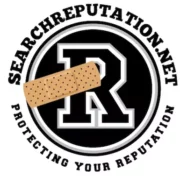When we work with individual online reputation management clients, our discussion often leans towards building websites to help them counteract negative press releases that may be looming on the first page of the SERP. Yes, this is a tried-and-true part of our process to unleashing a stellar digital footprint where your desired results will end up on top, however we must not neglect the importance that this tactic has on personal branding.
The People Behind the Brand Matter
Clients trust the people behind the brand, no longer simply the brand. And this fact is especially true in an industry where reputation is at the pedestal of our clients’ concerns. This is why we encourage all individuals to take their name into their own hands and brand themselves online. Wipe that smug expression off your face if you’re thinking “personal branding is for the self-enthusiast, ego-centric individuals of this world who won’t stop yapping on about how great they are in everything they do.” Nobody likes to surround themselves with self-centered friends or colleagues unless they are one of the pack themselves! It’s time that we move away from stereotyping personal branding as a vehicle of bragging and understand that self-branded digital properties have many more advantages than you can even count on two hands.
How to Start Branding Yourself
No matter what you do in life (unless it’s in the underground market), you should make a brand for yourself. You could be a yoga instructor, an elementary school teacher, an aerospace engineer… All you’ve got to do is secure those domains and social profiles with your name and get to work! A good starting point is to flesh out your USP (unique selling point) that will help differentiate yourself from the competition. It is not enough to simply be labelled a marketer nowadays as the market is highly saturated. Instead, find your specific niche. For example, at SearchReputation.net, our marketers are considered SEO and ORM experts. Once you’ve figured out your own area of expertise, put the gas to the pedal and start writing content. Begin by writing at least one article of between 300 to 500 words per week about your specialization. Google loves to see activity on your website when it crawls it, helping your domain to eventually rank high on the SERP.
Break Down Those Brick Walls
If you want to make a real impact on others who are seeking your services but don’t know it yet, you need to get your name out there in an organic way. Step outside of that comfort zone of yours and speak at as many conferences as you can. Throughout those conferences, give live case studies about past clients that you’ve dealt with. Sure, a part of personal branding does mean you need to market yourself, but that doesn’t mean that you should only use the stage time to express the promises that your services can follow through on. Provide tangible information that audience members can bring into their own line of work to help grow and succeed. End your tactics with a case study of how you’ve managed to help others who found themselves in tough situations. In our case, we’d explain the steps we took to repair a previous client’s tarnished reputation (with their permission, of course!) and how their online reputation compares today. If you haven’t garnered up enough courage to take center stage, attend the same conferences with the purpose of networking.
The Benefits Are Everlasting
You’ll notice that the more you brand yourself, the more people will trust you with their problems. You’ll be able to reel in more clients, and down the line you can even charge more due to the brand equity you’ve acquired. Creating a personal brand will also help you develop more prominence over time. It may come to the point where you realize that you are the go-to person in your market and will need to start hiring employees to keep up with the demand. Too many customers is always a good problem to have!
